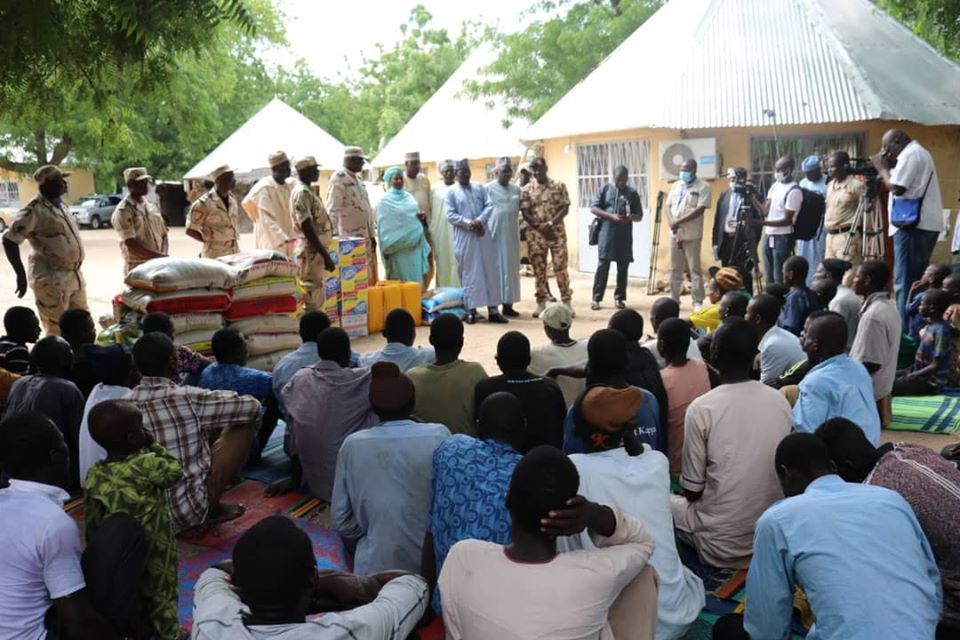Moving in husky tones, they tear up more cartons of frozen fish, slam them on the wooden floor and begin to yank them off with bare hands, piece by piece. The fish is bent in circular form and a tiny piece of bamboo stick is pierced through the head and affixed to the tail, forming zero shape. One after the other, they are carefully placed on nets atop huge metal containers. Beneath, blazing fire filters through carved fishes, as they roast and hum with aroma.
At regular intervals, the women approach the fire, with dim eyes and bare hands, to turn the fishes and let the smoke pass through every inch of their skin. The skin of the women gets burnt too in the process; but with skillful panache, they turn at least 50 pieces on the aluminium net tray repeatedly.
As early as 4am, the cloud over Makoko, a waterfront settlement on the Lagos lagoon, begins to thicken with huge smoke emanating from hundreds of tents and shanties built on stilts in one of the continent’s largest floating slum. The women here, majorly from the Egun ethnic group in the south-west, have no other occupation aside dealing with fish. It’s their major source of livelihood.
But it is really curious that these women deal with one particular fish, the hake fish. In local parlance, it is called “panla”. Most of the women at Makoko wake up as early 3:30 am to start preparing for the business of the day, after which they smoke the fish from morning to evening – because the demand is high in Lagos, a city of over 21 million people.
Advertisement
PANLA: THE IMPORTED FISH NOURISHING NIGERIAN HOMES
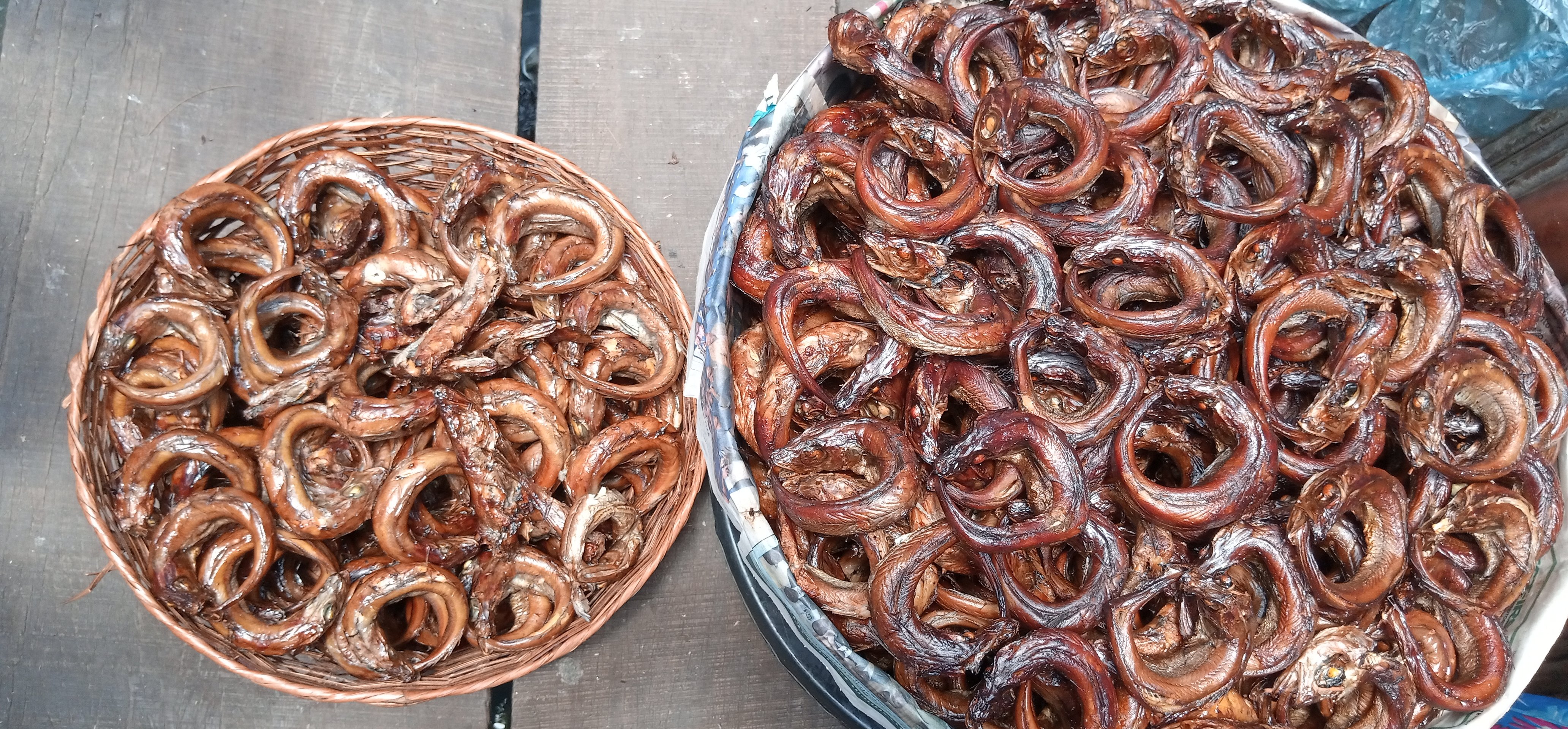
According to Shehu Akintola, professor of fisheries at the Lagos State University (LASU), the hake is largely imported into Nigeria from Scandinavian countries, especially Norway.
“It has a great taste. Hake is famous for Nigerian fish stew. The health benefits include a lower risk of heart diseases, improved mental ability, and protection from cancer. Usually, since most times they are dried or smoked, they tend to have elevated protein and lower fats contents and can be useful in promoting weight management,” Akintola told TheCable.
Advertisement
At fast-food restaurants, they are soaked in assorted soups, carefully displayed to the delight of visitors. Even roadside food sellers cannot begin the business of the day without the guarantee of the hake on the menu.
Women selling smoked hake fish are at Oyingbo, Iyana-Ipaja, Ajegunle, Sura, Ketu and every major market in Lagos. From the entrance of the markets to the centre, baskets of panla with glittering skins are placed in strategic positions, while buyers troop to purchase them. A piece is sold between N100 and N200, depending on the size.
For most homes in the city, it is a staple food for a nutritious diet. It goes with everything you bring forth to a feast. Aside from being deliciously suitable for garri, it goes with any soup, garnishes the rice, spices the porridge, scintillates the egg sauce and adorns the beans, especially when cut into shreds. Yummy, isn’t it?
THE APPETITE FOR FISH PRODUCTS INCREASES
Advertisement
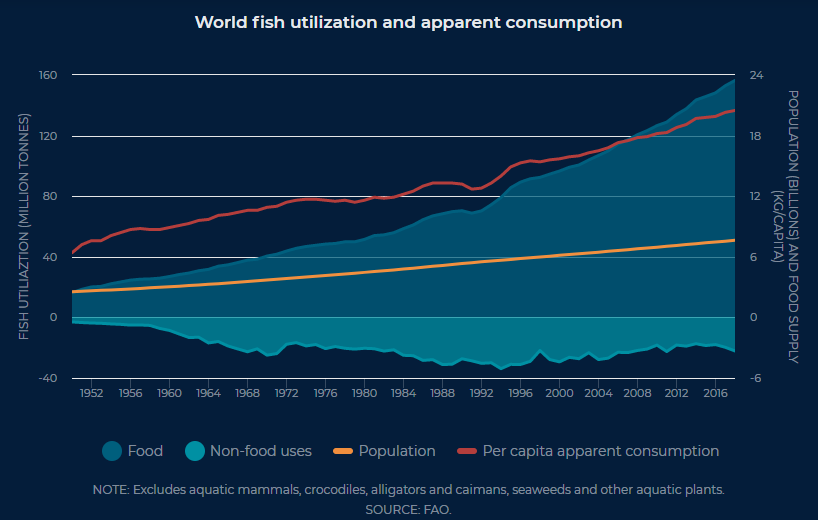
In 2019, Godwin Emefiele, governor of the Central Bank of Nigeria (CBN), disclosed that Nigeria’s fish demand is 2.7 million tons, while production stands at 0.8 million tons. This leaves the nation with a deficit of 1.9 million tons. However, the country spends about $1.2 billion on fish importation.
Nigeria is the fourth largest importer of fish in the world, after China, Japan and the United States.
According to the Food and Agriculture Organisation (FAO) of the United Nations, women account for just 14 per cent of the 59.5 million people engaged in the primary sector of fisheries and aquaculture in 2018. Yet, they play a crucial role in the fish value chain.
According to the agency, as the world’s appetite for fish and fish products shows no sign of slowing, global fish consumption, in 2030, is projected to be 18 percent higher than in 2018 (which stood at 20.5 kg per capita).
Advertisement
But this will come at a price for the industrious women of Makoko who toil day and night to supply panla across Lagos. With the declining population of fish in the lagoon, they’ve turned to the big companies that ferry large quantity of hake into the country.
FACING THE BLAZING FIRE
Advertisement
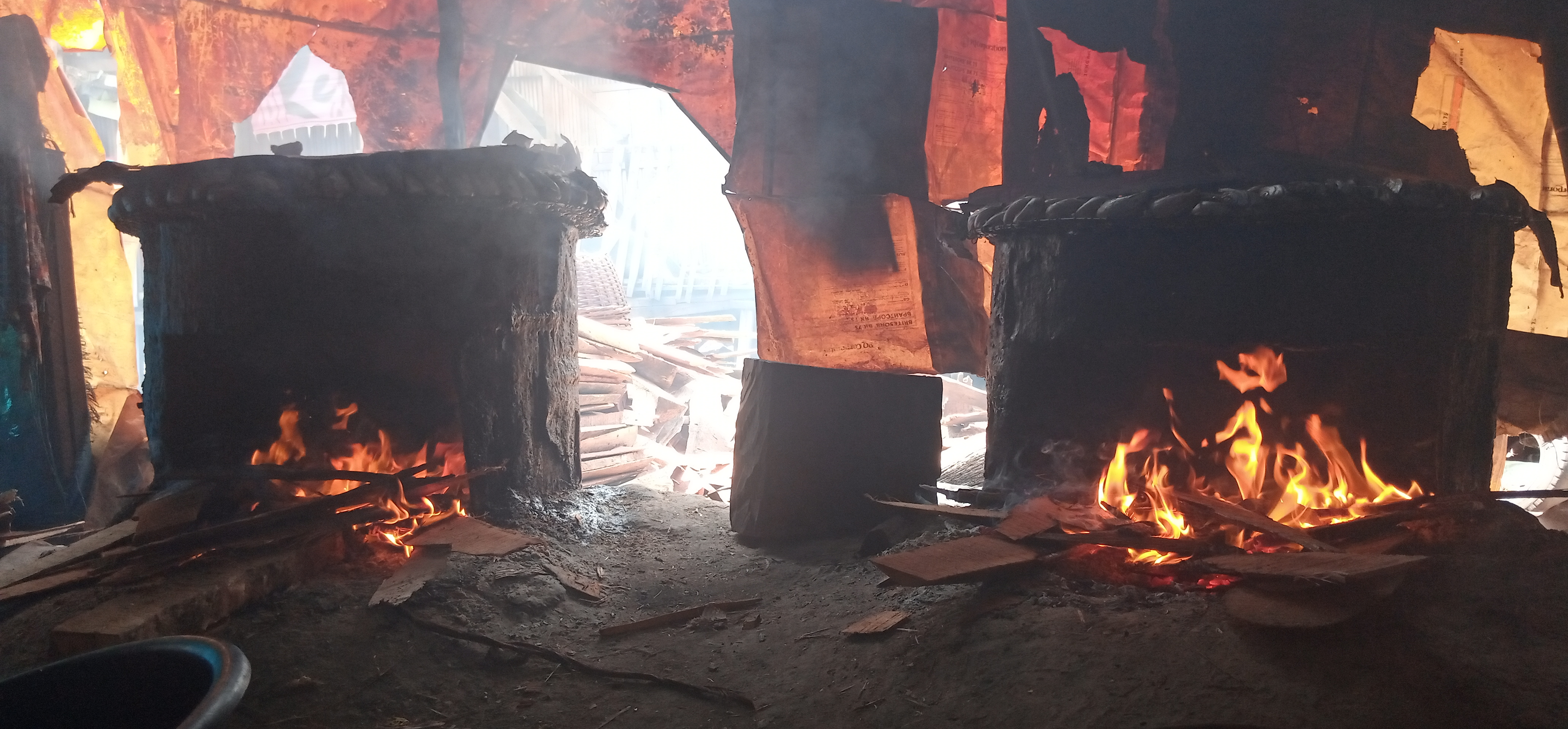
Sixty-year-old Vinadugan Hwenu smokes at least 10 cartons of hake daily, except on Sundays – the only day the women reserve for resting. A carton goes for N16,000 and it contains about 60 to 80 pieces of fish. On lucky days when Hwenu counts up to 70 pieces in a carton, she smokes a minimum of 700 pieces before nightfall. From 5am when the mother of four usually wakes up to join her children in preparing the fish for smoking, she only moves from the large kitchen built with planks on a pile of sand and sawdust to the corridor, where she intermittently greets passersby on boats. She’s been doing the job since she was a child.
Beside her lies a plastic container of drugs: diclofenac sodium tablets, diclofenac potassium tablets, ginovera, piroxicam capsules, ciprofloxacin tablets, unicure pedicure, paracetamol and a bottle of herbal mixture reclining on the bamboo wall of the main building.
Advertisement
“When we are done with smoking the fish, we drink a can of milk. Then, we take drugs. After facing the fire while adjusting or replacing the wood and turning the fish, you have to deal with the huge smoke as well. Your eyes are affected, the body aches. We develop fever, weakness and headache. The eyes become itchy and we have to get eye drops too. So, we have to keep ourselves healthy and strong with the drugs,” Hwenu said while instructing her pregnant daughter to attend to the fish.
“When we grow older, we usually have issues with eyesight. But we have to keep on doing the business to survive. This is the only work we were brought up with.”
Advertisement
Hwenu supplies Iyana Ipaja in Lagos as well as Sango-Ota and Ifo, towns in Ogun state. Her colleagues supply other parts of the state, including Lagos Island.
‘WE ONLY MAKE LITTLE PROFIT’
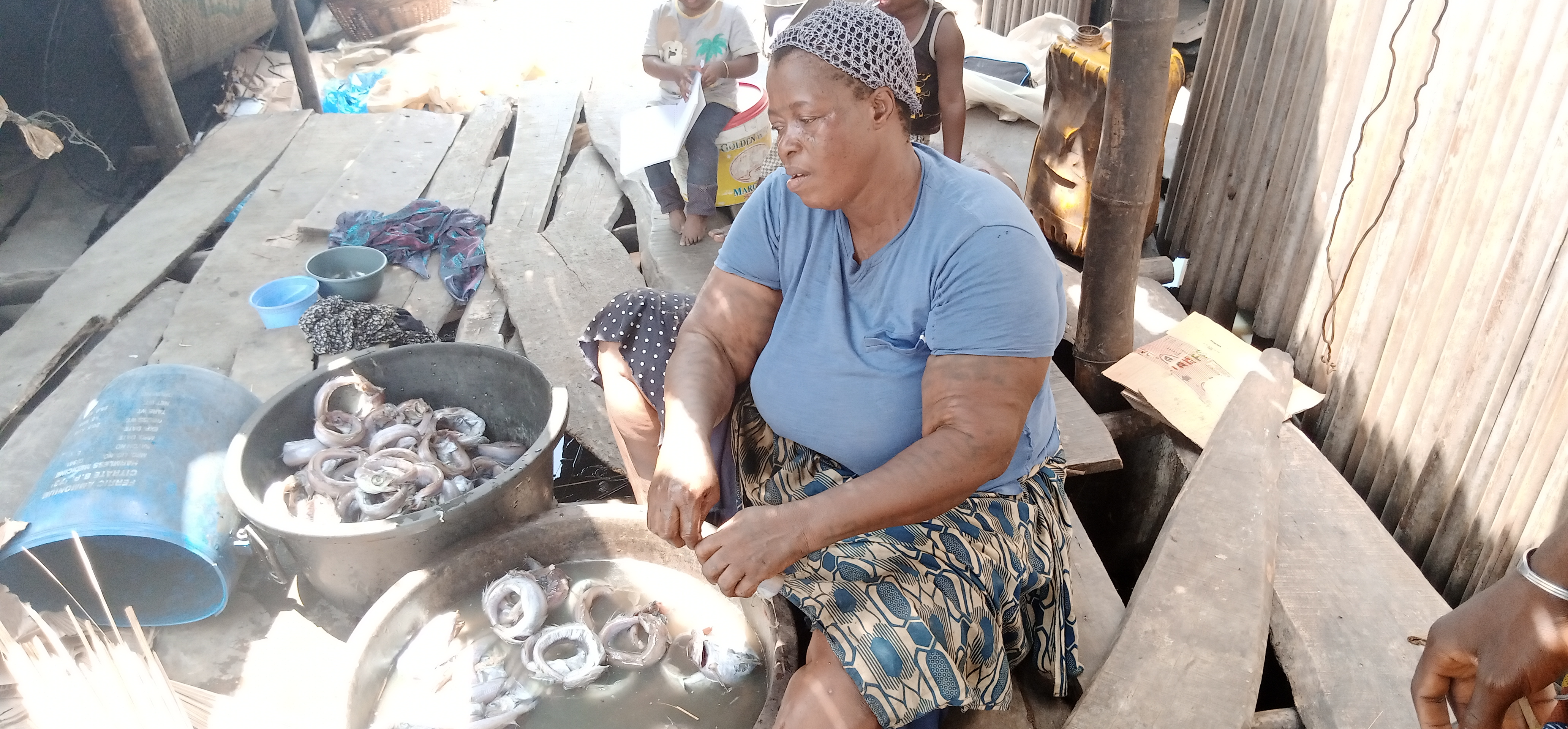
She continued: “I have a shop where I pay N60,000 rent annually. You pay for the fresh fish from the cold room. Also, I charter a bus that I use to convey the smoked fish for supply. You have to pay for that too. Then, you also buy wood, sawdust, bamboo sticks and water. When I calculate my profit at the end of the week, I make an average of just N12,000.”
When asked if sawdust could be removed, since the wood practically does the main job, in order to cut down the expenses, she laughed hysterically before tapping the reporter: “My son, you cannot remove the sawdust. That is what makes panla shiny, smooth and inviting, as though you applied groundnut oil.”
Like Hwenu, 35-year-old Elizabeth Atungbe said she also smokes nothing less than 10 cartons of hake every day with the help of her 16-year-old daughter. She said for every carton she purchases, she makes a profit of N2,000.
“Getting the wood at Ebute-Meta is expensive. What you are left with at the end of the day after feeding your family is hardly enough to get you fresh supplies,” the mother of three said.
“During the COVID-19 lockdown, things became worse for us. We could not sell our fish because we could not get vehicles to transport them. We had to stop working. To cap it all, we did not get a single palliative material from the government in this settlement.”
Corroborating Elizabeth, 35-year-old Bernadette Ado said her 14-year-old daughter, Elodi, had to hawk the fish during the lockdown for them to survive.
“My children were hungry. From the little we sold, we were able to live through the period. Now, we need money to boost the business again.”
NO ACCESS TO LOANS AND MODERN EQUIPMENT
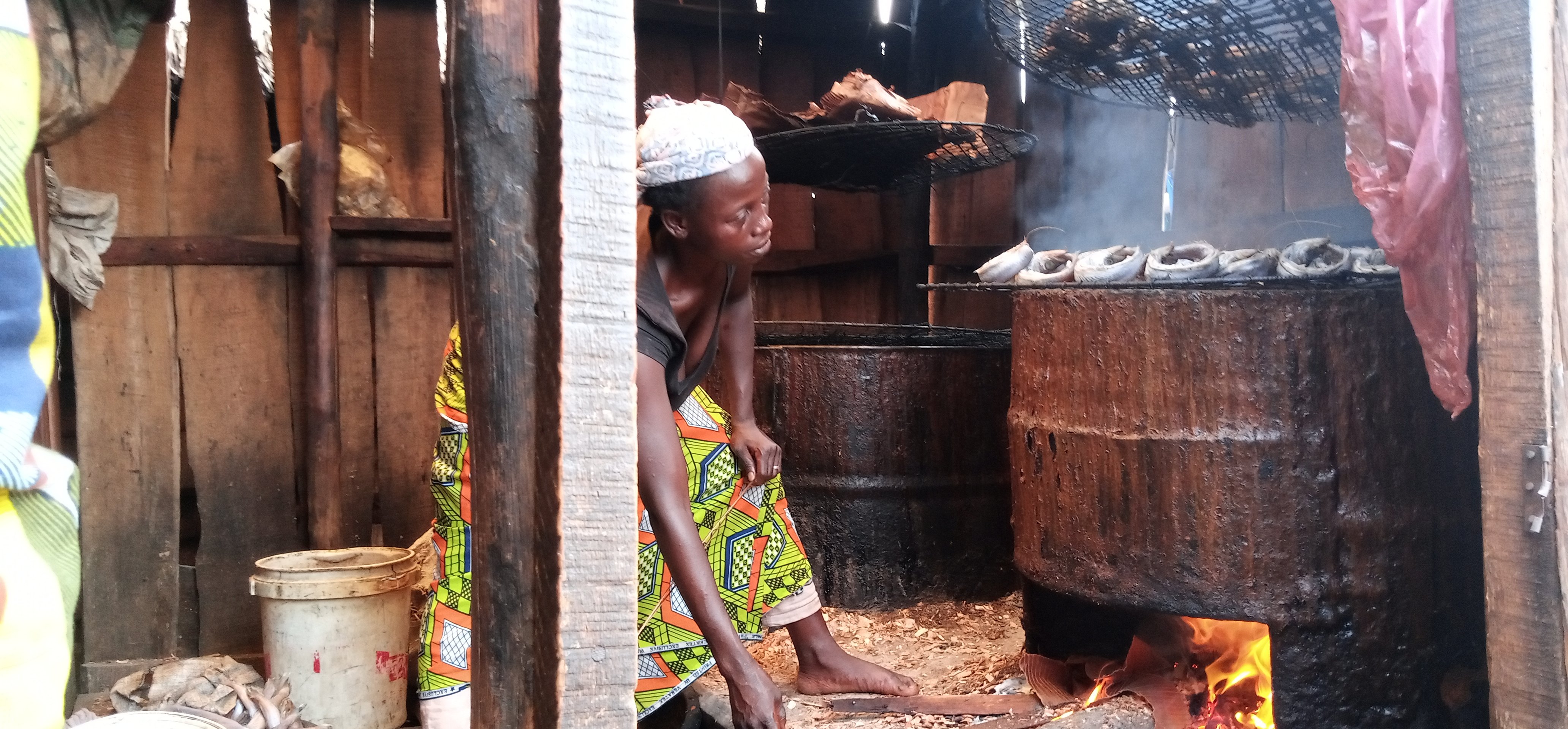
But there is nowhere to get a loan or any other form of financial support, Bernadette added. She saves part of her daily sales with the thrift collector to keep the business afloat. On how the thrift works, Bernadette said she saves N500 every day. At the end of the month, she withdraws her savings and the thrift collector takes a day contribution as his charge. In other words, if she saved N15,500 for 31 days, she can only get N15,000 back.
“There is no interest. We just want to be sure we are saving somewhere so that we don’t eat the profit with the capital. With that, you have something little to pour back into the business. That is why most of us cannot afford this modern machine that is used to roast fish without facing fire and smoke. We know there are better ways to do this business, but where is the money?” she asked.
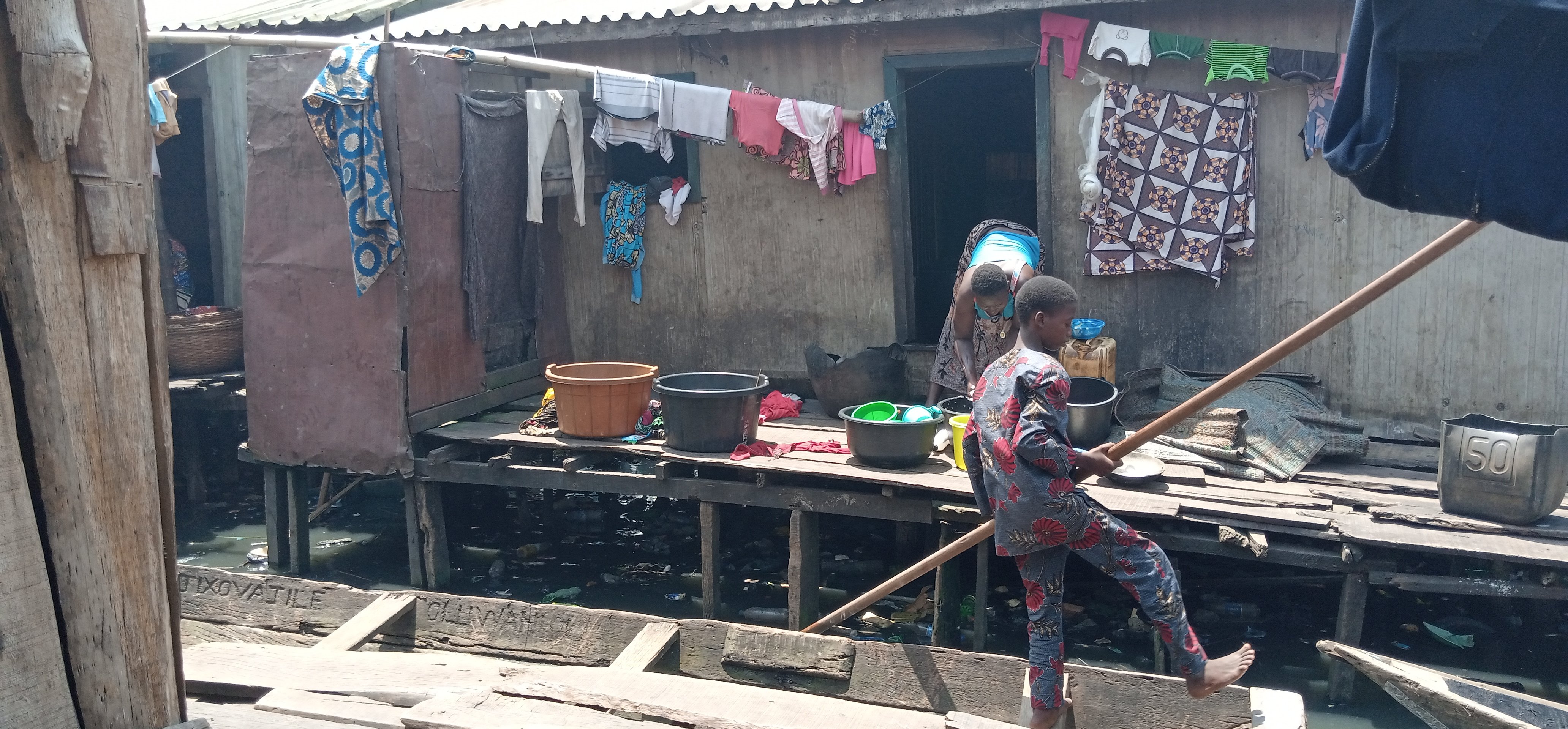
Hwenu said she has no access to loans, so she buys the fresh fish on credit from the companies anytime she does not have enough money. She pays back after selling the fish.
In March, the Central Bank of Nigeria (CBN) announced a N50 billion targeted credit facility as a stimulus package to support households and micro, small and medium enterprises (MSMEs) affected by the COVID-19 pandemic. Eligible participants are households with verifiable evidence of livelihood and existing enterprises adversely impacted by the pandemic. Households can access a maximum of N3 million. Most importantly, the scheme covers the agricultural value chain, with an interest rate of 5% per annum. But the women of Makoko said they never heard about the scheme, even when N49.195 billion have been disbursed to over 92,000 beneficiaries, according to latest CBN records.
And if they were aware, the question comes back to if they have the collateral required to benefit from it. Will shanties raised on dark and dirty waters of Makoko be accepted as assets? Since these women do not have bank verification numbers (BVN) and business registration documents, what’s the certainty that such financial support will fall on their laps?
WILL LAGOS BOOMING DIGITAL MARKET IMPROVE THEIR LIVES?
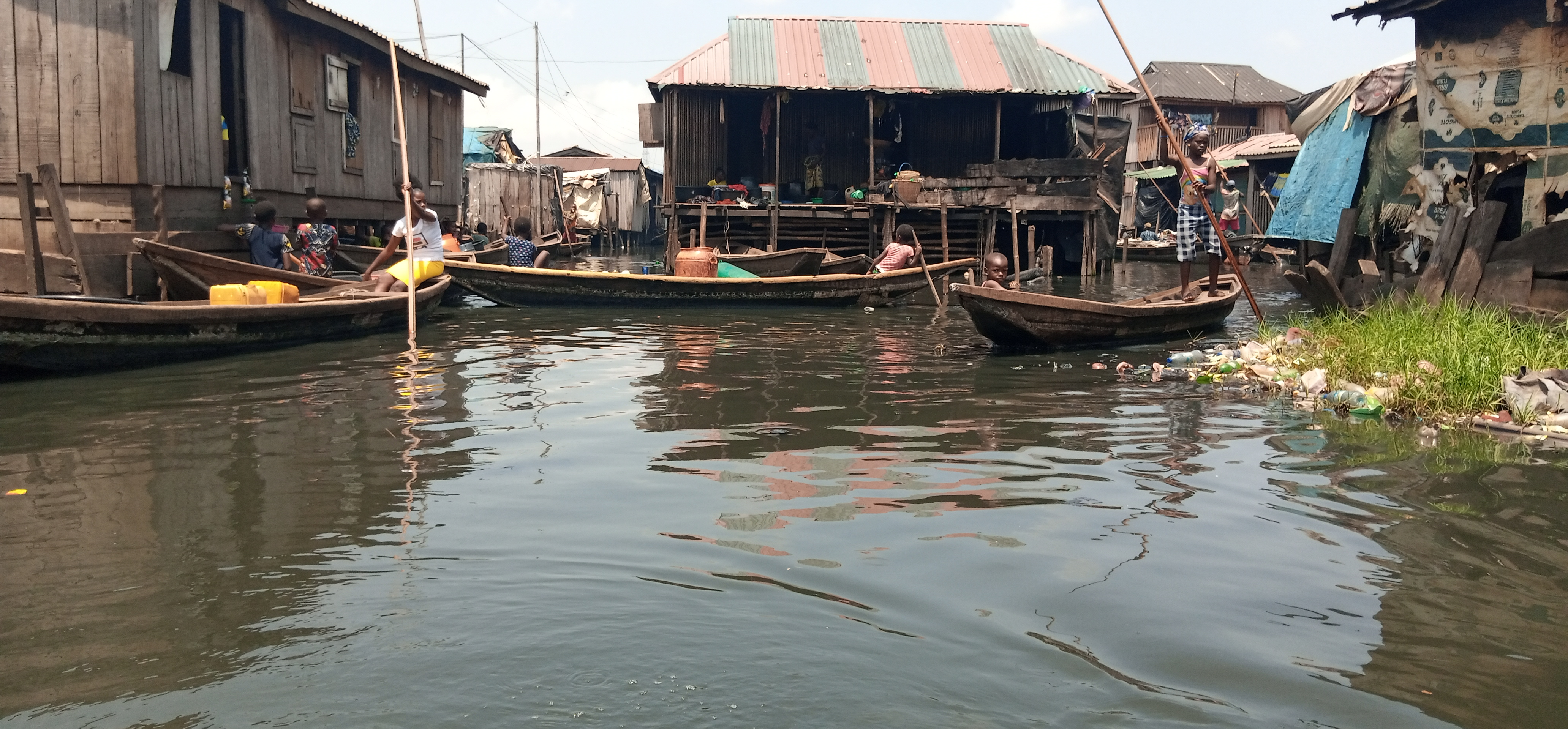
The women interviewed at Makoko have one unifying factor: lack of formal education. From Hwenu, Elizabeth to Bernadette, they never had basic education. They have no smartphones too; hence, it was needless to ask if they were on social networking sites where they can also tap into the growing digital market to trade their fish. What they have are basic JAVA mobile phones with which they communicate with their customers across the state. To them, as long as they can make and receive calls, life is good.
But there is a better life beyond their wooden cubicles in the fast-moving digital market in Lagos, Nigeria’s economic capital and Africa’s fifth-largest economy. These women are scarcely aware too. Small-scale businesses are taking advantage of social media platforms to market their goods and services, while they continue to connect and grow their customer base from the comfort of their homes.
With a good internet service and a smartphone, they do not need to pay for shop rents, with the extra expenses of having to equip and maintain the space, and hire more workers. “Because of smartphones, everyone in Lagos is now an online vendor,” Oluwafemi Ogunjobi, a programme officer with a non-governmental organisation, retorted jokingly.
In 2016, the global digital economy was worth about $11.5 trillion, equivalent to 15.5% of the world’s overall GDP.
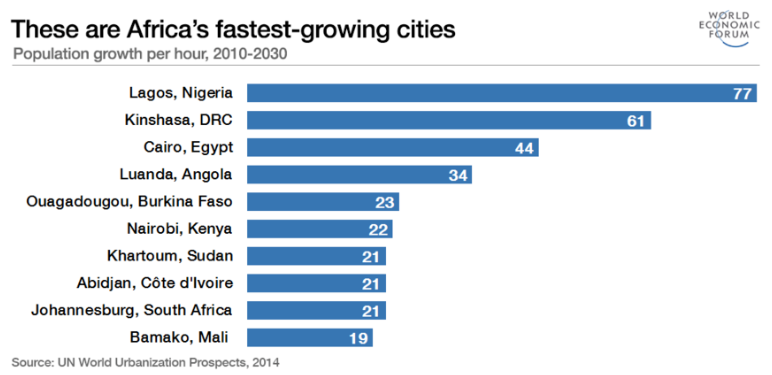
In its first Nigeria digital economy diagnostic report of 2019, the World Bank recognised the country as the largest mobile market in Sub Saharan Africa with strong mobile broadband infrastructure and a vibrant digital entrepreneurial ecosystem. In particular, the bank said Lagos is a mature and active ecosystem in Nigeria’s digital economy with dynamic incubators, venture capital companies, and tech start-ups.
With the prediction of the World Economic Forum that 60 percent of the global economy is going to be digitalised by 2022, how do we bring women entrepreneurs in the informal space to the new world? Responding to this, Adeboye Adegoke, senior programme manager at Paradigm Initiative, a digital rights advocacy organisation, said he does not see formal education as a barrier in bringing the women of Makoko to benefit from the digital market.
“The most feasible way is to train them with basic digital skills. In the digital economy, formal education is not a barrier and the skills required to thrive are teachable to any group. One of the most interesting things about digital devices is that you get better with use,” Adegoke said.
“Government statistics show that ICT contributes up to 14% to Nigeria’s GDP as of Q1 2020. On the macro level, the government must get its policy on access right. The internet must not only be accessible but it must also be affordable. Women entrepreneurs must see the cost of data and devices as investment or the new “cost of business”. The major gains from these are the diverse customer base not limited by geographical location. This will expand the revenue base for these entrepreneurs.”
In a slum booming with poverty and despair, bringing the digital revolution to the doorsteps of fish traders of Makoko may improve their lives for better.
This report was published as part of the Budgit/Civic Hive Media Fellowship 2020. Published materials are not views of BudgIT/Civic Hive.
Add a comment




